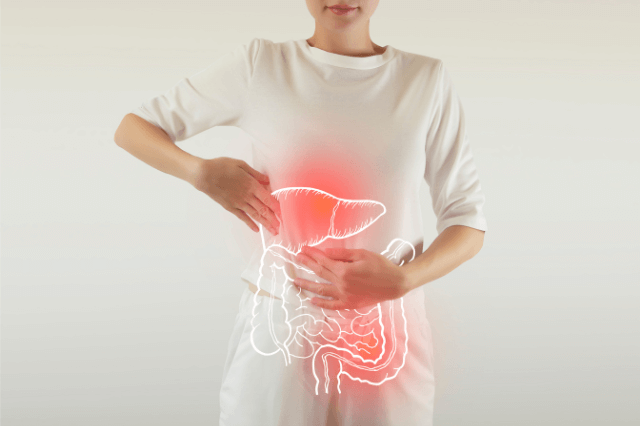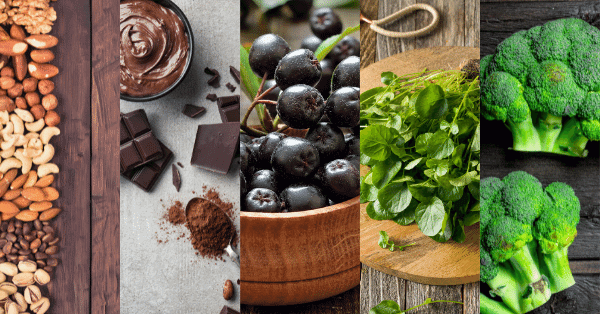Digestive Health: 6 Tips to Support Your Gut Health
In the fast-paced and convenience-driven modern world, changes to our lifestyles over the years have resulted in a rise in digestive health problems. How is it possible to improve digestion and maintain good gut health? The gut is home to around 70% of the body’s immune system, and systemic inflammation caused by an unhealthy gut can alter your immune system’s functionality, putting you at risk of a multitude of health concerns. But don’t worry, you can support your gut and aid digestion by incorporating our 6 simple tips below into your lifestyle! We will also show you some food good for digestion.
What is the Digestive System?

The digestive system is the name given to the group of organs responsible for breaking down the food we eat, absorbing their nutrients and then excreting the waste. The long tube that connects all of these organs, from the mouth all the way to the anus, is known as the gastrointestinal tract.
Along its way through the body, the food and drink you consume will pass through the mouth, pharynx, esophagus, stomach, small intestine, large intestine, rectum, and anus – taking around 24 to 72 hours to complete.
Using fluids and enzymes made by the salivary glands, liver, gallbladder, and pancreas, food is broken down and its by-products are used to support a variety of bodily functions. As you can see, every mouthful must make quite a journey through the digestive system, but what if there is a problem along its path?
Common Signs of an Unhealthy Gut
Unfortunately, this complex digestive system can have difficulty functioning effectively. In turn, this can leave you with some unpleasant, but very common, symptoms such as gas, bloating, constipation, diarrhea, and heartburn.
It isn’t just stomach upsets that can point towards an unhealthy digestive system, skin irritations such as eczema, chronic fatigue, sugar cravings and unintentional weight changes can all point towards problems in your gut.
Although not all diseases begin in the gut, studies have shown a strong link between gut inflammation and a range of chronic metabolic diseases. Raised blood pressure, abnormal cholesterol levels, and high sugar levels can all increase your risk of developing complications such as type 2 diabetes and heart disease. So what can you do to improve digestion?
1. Food Good for Digestive Health

Reaching for convenience foods has become commonplace in many households. But these processed foods are often high in sugar and fat content, containing artificial ingredients that your body can mistake for an “intruder”, triggering an inflammatory defence response.
Your body requires a balanced diet of wholegrain starchy foods, along with fruit, vegetables and lean proteins to gain the nutrition it needs to support proper function. Foods that are high in fibre are excellent to improve digestion but also lower the risk of cardiovascular disease, type 2 diabetes and bowel cancer. improve digestion
Food good for digestion, such as the Aronia berry is a great way to easily add a boost of rich fibre and vitamins to your diet. Aronia berries are a great source of the mineral Zinc that is essential to maintaining gut health. Implementing foods high in Zinc into your diet can reduce symptoms of digestive issues and reduce the risk of gastrointestinal disorders. Not to mention they are a fantastic source of antioxidants, boosting your body’s natural defences and protecting its cells from damage.
2. Drink Plenty of Water to Improve Digestion
Hydration is important and not getting enough water can lead to constipation. Your body is made up of nearly two-thirds of water and requires around 2 litres of liquid a day to function properly. Drinking 8 glasses of water a day can feel like a chore, but you can also increase your fluid intake in other ways.
Herbal teas are a great flavoursome alternative, which can provide additional vitamins and minerals to support your body. Be sure to avoid caffeinated beverages, however, as the laxative effect of caffeine is a known stomach irritant.
Fruits and vegetables with a high water content such as melon, cucumber and tomatoes, for example, can also boost your hydration and make a tasty addition to your meal or snacks.
3. Prebiotics and Probiotics to improve Digestive Health
Your gut needs to maintain a balance of good bacteria to defend against the bad bacteria that can make you unwell. An imbalance of bad bacteria due to poor diet can lead to a leaky gut, allowing endotoxins to make their way into the bloodstream, triggering an immune response that can lead to many chronic diseases.
Adding good bacteria into your diet can help to boost your body’s natural defences and improve digestion. Foods containing live cultures, such as yogurt or fermented foods such as sauerkraut and kimchi are great probiotic sources of helpful bacteria.
Prebiotics are a type of fibre that the body cannot digest, but good bacteria can, providing them with the nutrients necessary for digestive and immune support. Berries, beans, oats, bananas, onions and garlic are all great sources of prebiotic fibres.
4. Reduce Stress to support Gut Health
Stress has a direct impact on your body’s function and ability to digest food. Hormones released during times of stress signal to your body that you do not have time to digest your food and instead energy is diverted to other parts of your body. There have been strong links found between high levels of stress and digestive issues such as IBS, stomach ulcers and constipation.
Take some time out to relax and unwind, meditation and breathing exercises have been shown to help reduce symptoms in those who suffer from digestive conditions. Simply stopping to laugh with friends, cuddle your pet, getting a massage or going for a walk can all boost your body’s serotonin levels. Serotonin is the neurotransmitter that helps to regulate your mood and sends signals to your brain that it is time to digest your food.
5. Exercise to improve Digestion
One of the best ways to get your food moving along your digestive tract is to get your body moving. Studies have shown that implementing a regular exercise routine into your lifestyle can speed up the digestive process by almost 30%. Something as simple as a gentle walk, bike ride or jog can help relieve symptoms of constipation and inflammatory bowel disease.
Getting your body moving regularly is also great for boosting the immune system, it increases blood flow and strengthens antibodies that are vital for fighting off infections.

6. Eat Mindfully to support Gut Health
Mindful eating doesn’t just relate to what you put on your plate. Overeating is a common cause of uncomfortable symptoms such as gas, bloating and indigestion, so it is important to stop eating when your stomach feels full. The brain can take around 20 minutes to register fullness as it relies on the chemical reactions caused by food and drink entering the body, so it is important to pay attention to how much you are consuming.
The time of day in which you eat can also impact your body’s ability to digest food well. Eating when emotional or anxious can cause bloating and discomfort as the chemical responses in our body caused by these feelings slow digestion. Additionally eating just before you go to bed can lead to heartburn and indigestion as the contents of your stomach can rise up causing symptoms of reflux.
The Bottom Line
The digestive system is complex, but there are many simple steps you can take to improve digestion and your gut health. By mindfully eating food good for digestion, staying hydrated and making sure you get enough exercise and rest, you can improve the health of your gut from home. Maintaining a healthy digestive system is important to maintaining the overall health of your body and a strong immune system.
Start today with our range of nutrient-dense Aronia Berry products, an easy way to kickstart your journey to a healthier gut!







